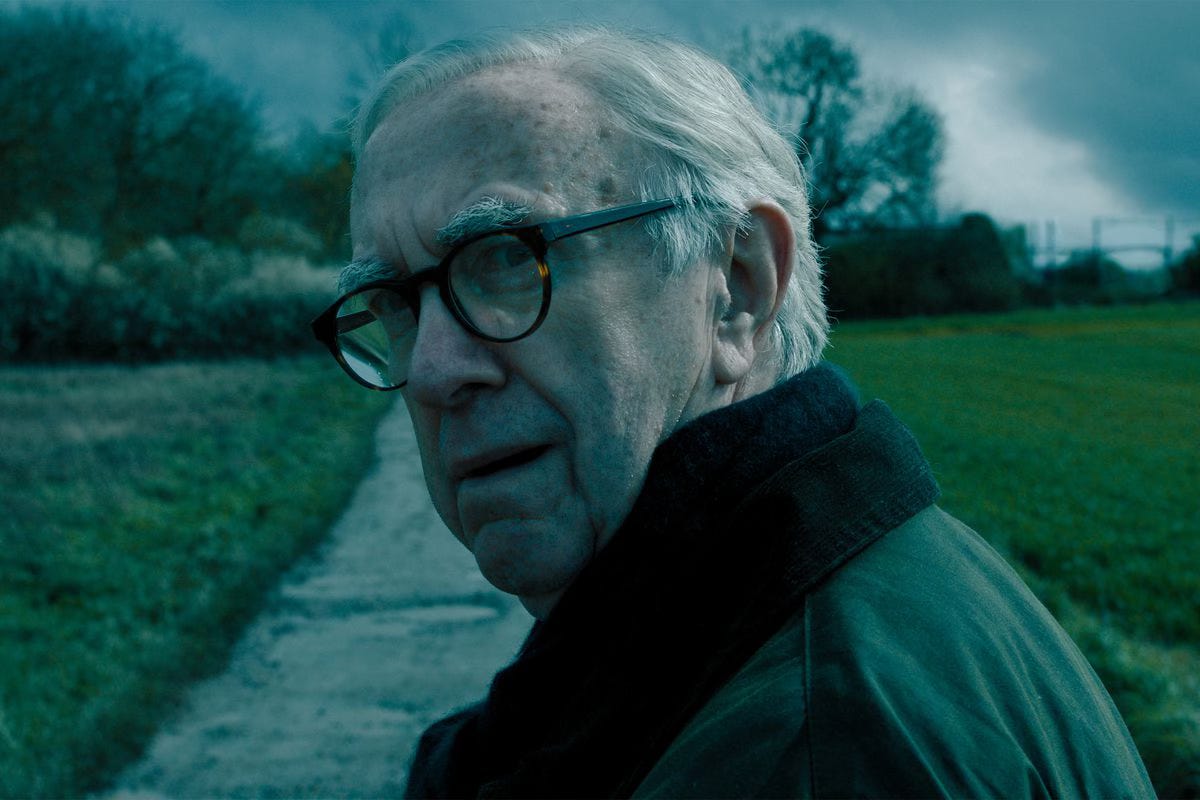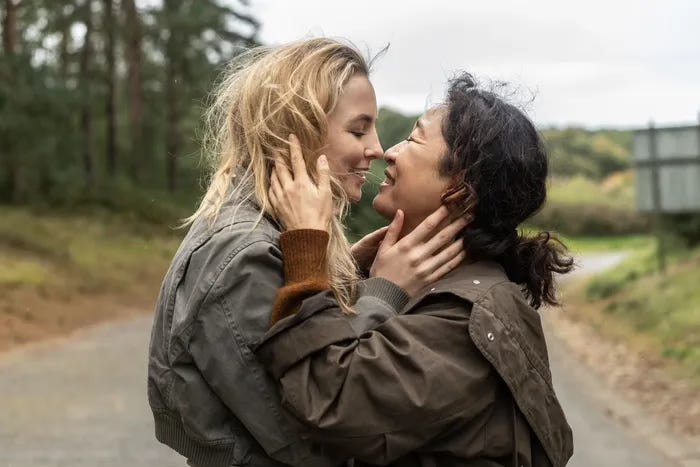Justifying the Ends.
"Slow Horses," "Kleo" and "Killing Eve."
This post has spoiler warnings in the “Slow Horses,” section near the bottom, doesn’t really need any for the points made about “Kleo” and full spoilers for “Killing Eve,” but that ended two and a half years ago, so I have immunity, but I’ll keep some things hidden.
If you love television, and you wouldn’t be here if you didn’t, then you should really fear the season ending episode and, worse, the series ending episode.
Often it’s a letdown, both creatively and for how it makes fans feel. And yes, one day I’ll write about all the greatest series endings ever — here’s three quick ones: “The Sopranos,” “Mad Men,” “The Americans” — but the TV landscape is littered with episodes that just fall short, in some way, for all involved.
That’s not always the bad thing it might suggest. Sometimes fans just want absolute lock-down closure and so series that opt for being ambiguous are obviously going to disappoint (even if, say, a professional critic may adore the choice).
These days, especially on streaming platforms, a season finale is regularly and unfortunately just a bland, ill-defined pause more than an ending. There are less bangs; more golf clap than firecracker, more head nod than mind blower. Just part of the distressing X-Hour Movie trend that directors think is cool.
Because of, well, all of this, I love writing about endings. There is so much to justify, as the headline says, about choices made in closing out a story.
As part of my summer long distract-from-reality viewing, one of the series I went back to rewatch (and then found out, as I wrote previously, I actually hadn’t finished) was “Killing Eve” (the BBC America series now on Netflix). It turns out I had watched the first three episodes of S3, so I powered through that season and then watched all of S4, the final season.
I also finished watching the recent S2 of “Kleo,” the German series on Netflix.
And on Tuesday just after 6 p.m. (thanks for the tip, dear reader) I watched the S4 finale of “Slow Horses.”
To reiterate, I love watching the decisions that go into endings. And beyond that, there’s a sense of accomplishment, finishing a season, crossing it off a list. So, let’s look at those story ending decisions, going backward first:
“Killing Eve.”
I disagree with whatever gurgling critical thought suggested S3 wasn’t good. More on that in a moment. Obviously, S4 had the harder task — it’s the last season, so you have to wrap up a lot and then deliver a finale that makes everyone happy. Well, so much for that. I think S4 could have been so much better and I’m knee-jerk inclined to think they over-thought it, but upon further review, they just under-thought it.
“Killing Eve” is a character driven drama based on a series of books (as yet unfinished, and author Luke Jennings said his books will not end like the series), masquerading as a kind of far-fetched espionage thriller. Usually when someone (a show runner, writer, etc.) thrusts “It’s a character driven show!” in your face for a defense of story gone sideways, they are given a free pass. As if the assumption, in this case, was “well, it’s really all about the magnetic, maniacal, funny sociopath that Villanelle is and the psychodrama that ensnares Eve into her world.”
Which is also a way of saying, “the premise and plot are secondary.”
The answer to that is, “No.” Or should be, roughly 75 percent of the time.
The idea that if an audience falls so in love with the characters then the reason these characters are all together doesn’t matter is nonsense. It’s a drama. They are in movement. In “Killing Eve,” admittedly, there’s a dodgy central idea that unfurls — there’s a nefarious group called “The 12” who really call all the shots around the world, using assassins to take out targets; they are controlled by no government (or multiple governments?) and this underground leadership is basically a hydra — you can never stop them permanently.
Of course, that’s a convenience that pops up strongest in S3 — before that, the goal is definitely to bring down “The 12.” Then it became, “who are The 12?” Then it became more of, well, they exist, but they are distracting from our story about Villanelle and Eve, so it would be easiest to say that even if you kill “The 12,” others will rise up. So our characters — and there are multiple excellent characters in “Killing Eve” — are moving around a chess board looking for 12 Queens, only to have the writers kind of turn over the table and say it doesn’t really matter who wins.
Disappointing? In S4, sure. I thought S3 was so weirdly out there it found new resonance in being adrift — the assassin Villanelle trying to change, the formerly not bad-ass Eve becoming more like Villanelle (and trying to figure out why). As seasons go, it was vastly entertaining, leaning into some warped concepts and, yes, carried by multiple characters. But it also kept up the lie — that the audience should invest in the nebulous mystery of “The 12,” and then later, someone trying to kill “The 12,” which is not the greatest added-on dodge.
So, right at this moment — when the last few episodes of your last season ever are unfolding, the writers kind of lose their minds. They needed to decisively make a decision about their two biggest characters, Villanelle and Eve, plus address the espionage issue that motivated every character’s existence.
What did they do? They added new characters (starting in S3) which were, to be clear, not necessary. And in the finale, they stall out everything by having Villanelle and Eve hanging out with a random couple in rainstorm for way, way too long. Long enough where I had to stop the series twice to see how much time was left and why they were wasting so much of it on this idiotic detour.
And then it ends — in a way I won’t spoil for you, other than to say a vast majority of the fans seemed tremendously annoyed and let down.
I just thought it was a wrong choice. Not only because it so clearly was going to disappoint the most loyal fans, but because other options seemed vastly more appealing and true to the show.
So, yes, “Killing Eve” became yet another show that had a bad series finale. The frustration is that it didn’t have to be that way. All told, however, “Killing Eve” is a binge delight, a mostly well-written, excellently acted, funny and thrilling series. This is why the season finale is so difficult for shows like this to pull off — sticking the landing can sometimes feel impossible. And yet, if ever there was a show to give the fans what they want — because that’s exactly what “Killing Eve” did for most of its run — it’s this one. The best ending was the most obvious one.
Instead, in a little more than an hour, the show tried to make sense of its espionage plot but seemed unaware that such heavy lifting was needed long before we got there and, most inexcusably, probably could have justified that by leaning into the old “this has always been a show about characters” excuse but spectacularly mangled that for the fans.
Me? I was kind of glued to that wreckage, actually. Watching the story structure implode and then the grievous character misstep, well, it was just more proof that a series finale can really mess up a creator’s head (or an entire writer’s room full of heads).
Television. It’s not easy.











